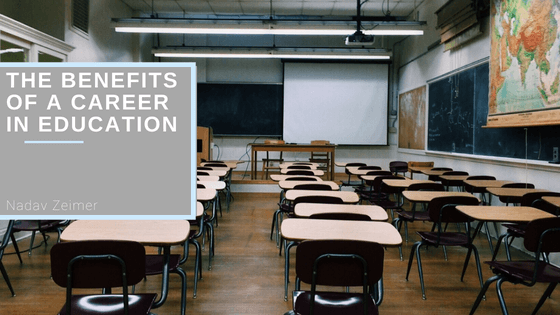Teaching is arguably the most frustrating job. Students hate school, parents and administrators love to blame teachers, and while one-on-one instruction is hard enough, teachers have to teach several classes. There is an opposing argument that teaching is, in fact, the most rewarding work out there. I find both of these to be true and even one and the same. Clichés abound pointing to this dichotomy of the “no pain, no gain” variety. Certainly, nothing is more nuanced and complicated than creating life-altering experiences for other human beings. What works for one classroom on one day rarely works for another class or the same class on a different day. A great educator learns to read the room and “flow” with other human beings in an act of pure creation and connection and mutual growth and understanding. Great teachers are the most talented leaders, producing results in people’s lives that would not have been possible without them. Meanwhile, a terrible educator gets paid tax dollars to work few hours, have summers off, while damaging young people’s confidence in themselves and their society, squelching their natural ability to adapt and survive and thrive in an ever-changing world.
Last Friday evening, my eight-year-old daughter said to me, “when other people cry, I can’t help but cry too. Why is that?” She was referring to a favorite TV show that made her tear up unexpectedly. We discussed the definition of empathy and how as human beings we seem to be programmed to react to connections with others and between others. In fact, we often feel very alive when we connect and depressed when we do not. Becoming an educator is like training for the Olympics of empathy, building muscles to connect with people at scale (25+ at a time!) and great teachers find more fulfillment in life than most of the rest of the world. And yet the flip side of that coin is that those who fail to connect with their students seem to cut off the ability to empathize at all, resulting in a robotic monotone and strict adherence to formality and rote, superficial learning. Bad teachers probably experience more resignation and hopelessness than those struggling at other careers. If you set out to train for the Olympics, it really can be devastating to discover how long that journey actually will be and how low your odds of success. And yet, the path to the Olympics is finite and well defined. Learning to be a great educator is an infinite journey, a lifelong pursuit with no gold medal moment. But a gold medal pales in comparison to the experience of inventing a future for a young person and then seeing that future come alive as the student matures, let alone doing that with tens if not hundreds of young people each year.
Like any field of work, just holding a title does not guarantee that we live up to that title on any given day or ever. Social activists can do social damage with finger pointing (“calling out” versus “calling in”), CEOs often are responsible for ruining their organization, and public servants from police to the president can easily undermine the values of the nation they are sworn to serve. Some active duty teachers are not learners themselves. They signed up for Olympic training and instead of training they watch the Olympics on TV eating hot wings and nachos and drinking beer. This hypocrisy is as human as our ability to be ambitious and imagine a future that is not based on the past. Teaching is for those who want to help shape the future of their community and that position inherently can lead to doing great harm.
The content one teaches is not as important as the love of learning difficult things, being confident that tomorrow we each have an opportunity to grow into something, unlike anything we knew yesterday. History or mathematics, physical education or training teachers, the content provides the opportunity to experience the cycle of learning including failure, practice, and victory over the past. The experience of learning builds our capacity to craft the narrative of our lives as human beings, no matter what circumstances life throws our way. Like the different fitness options at a gym – all subjects of study build mental muscle and increase stamina so that when we go out to live life, we can face the unknown or worse, the ambiguous, with confidence and agility.
Become a great teacher, and you learn to live life to the fullest, growing and expanding and evolving in surprising and inspiring ways. Become a bad teacher and give up on learning, living a resigned life, perpetuating the cycles of harm that have existed for generations. Learning exercises our relationship to failure. Those who build stamina in the face of failure can learn to achieve any result, and there is no better training ground for becoming a lifelong learner than to be responsible for a classroom of young people.
